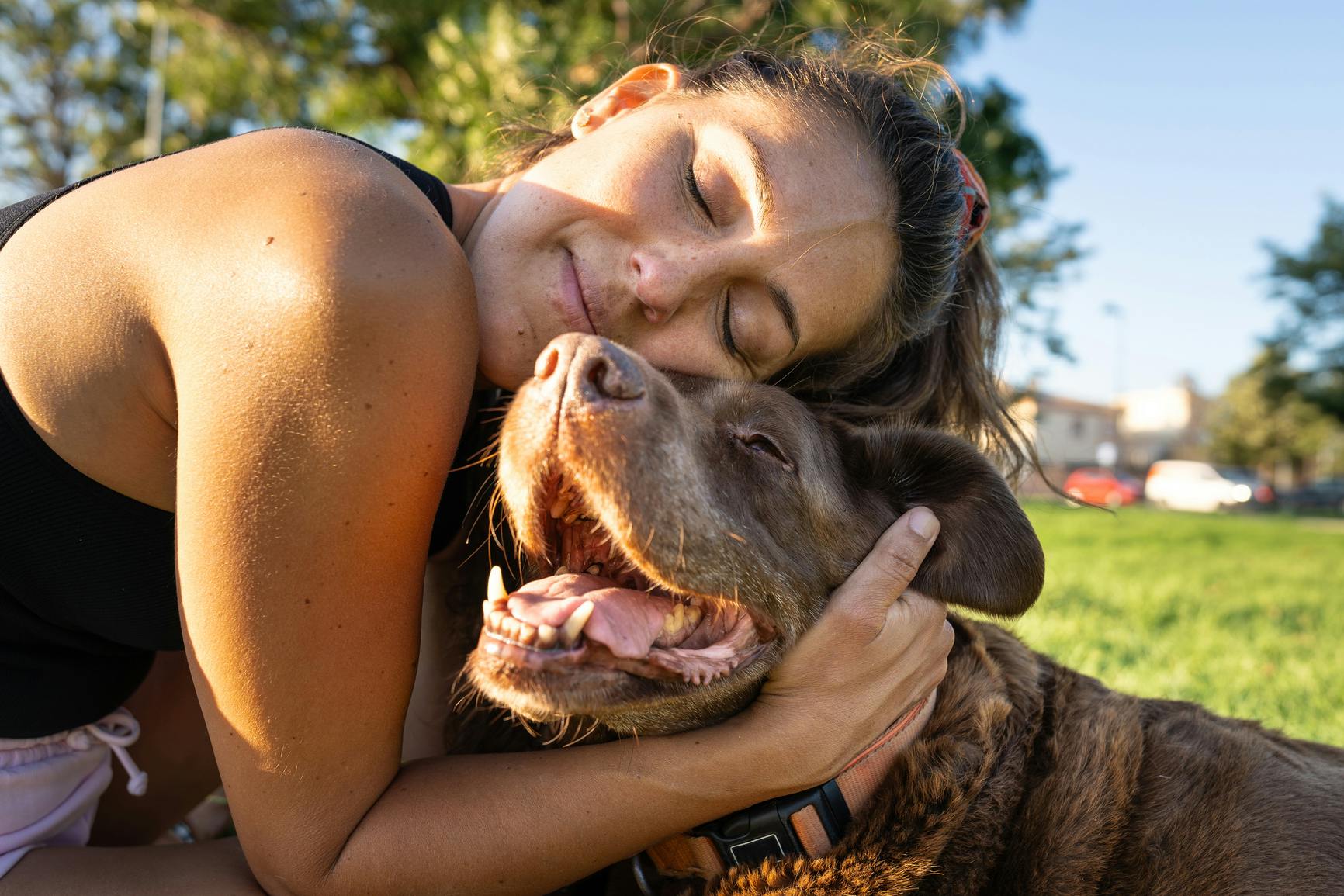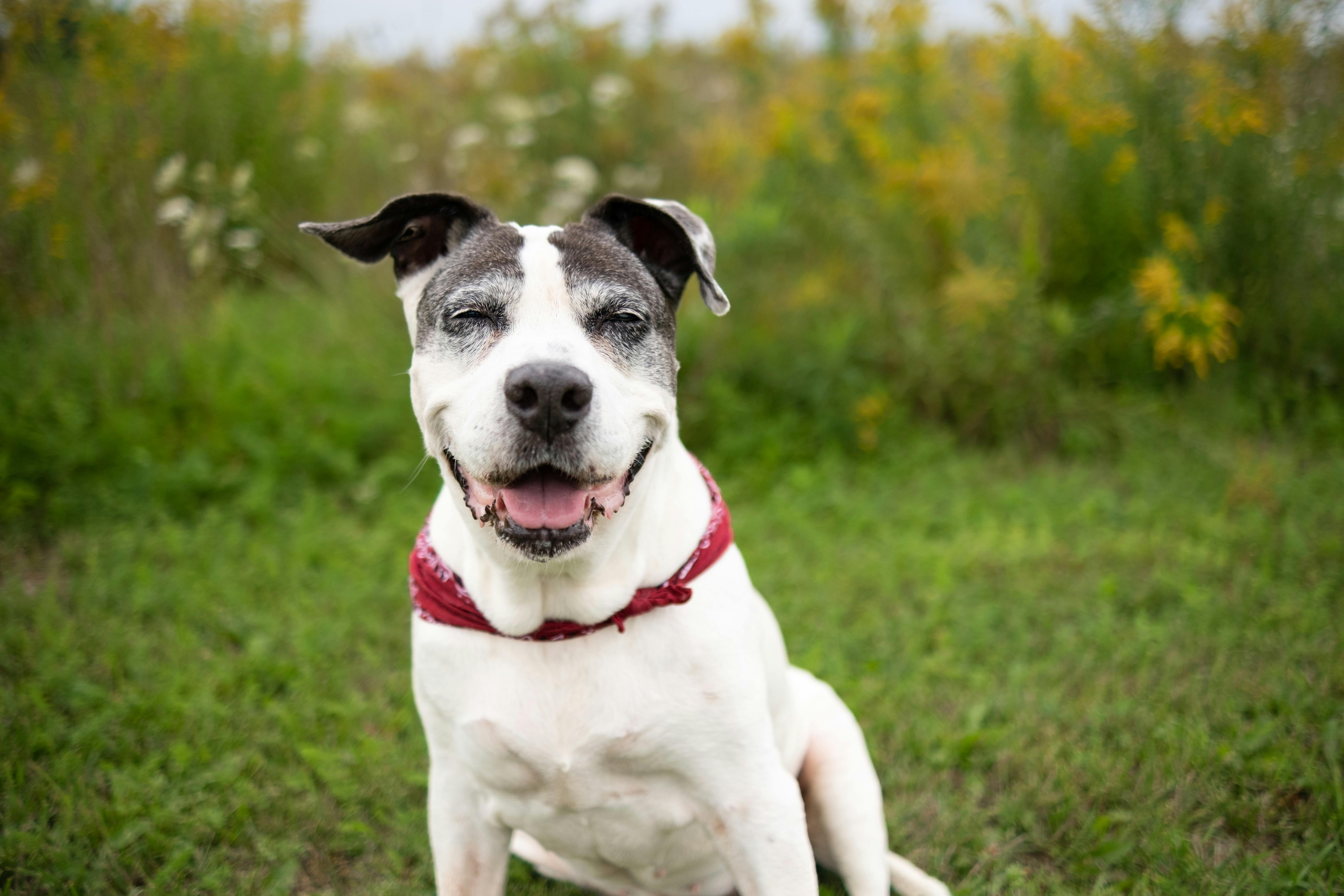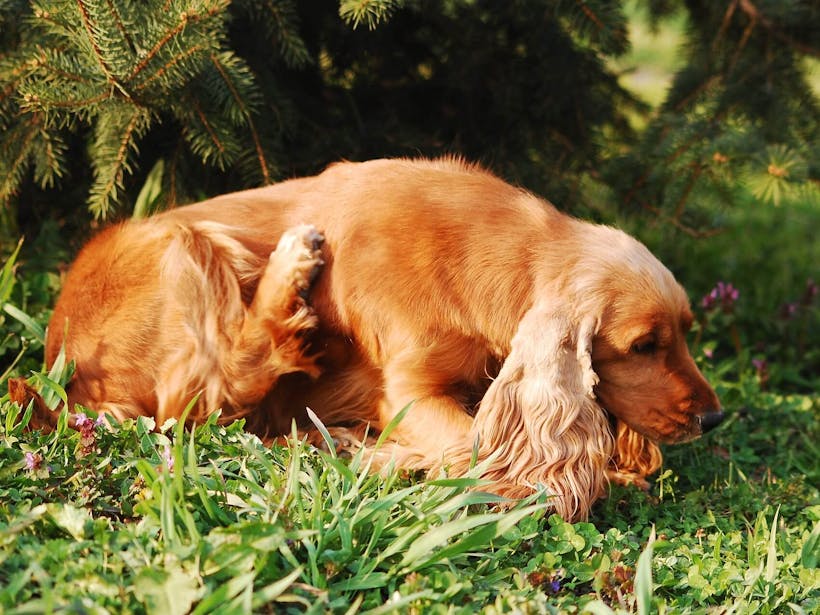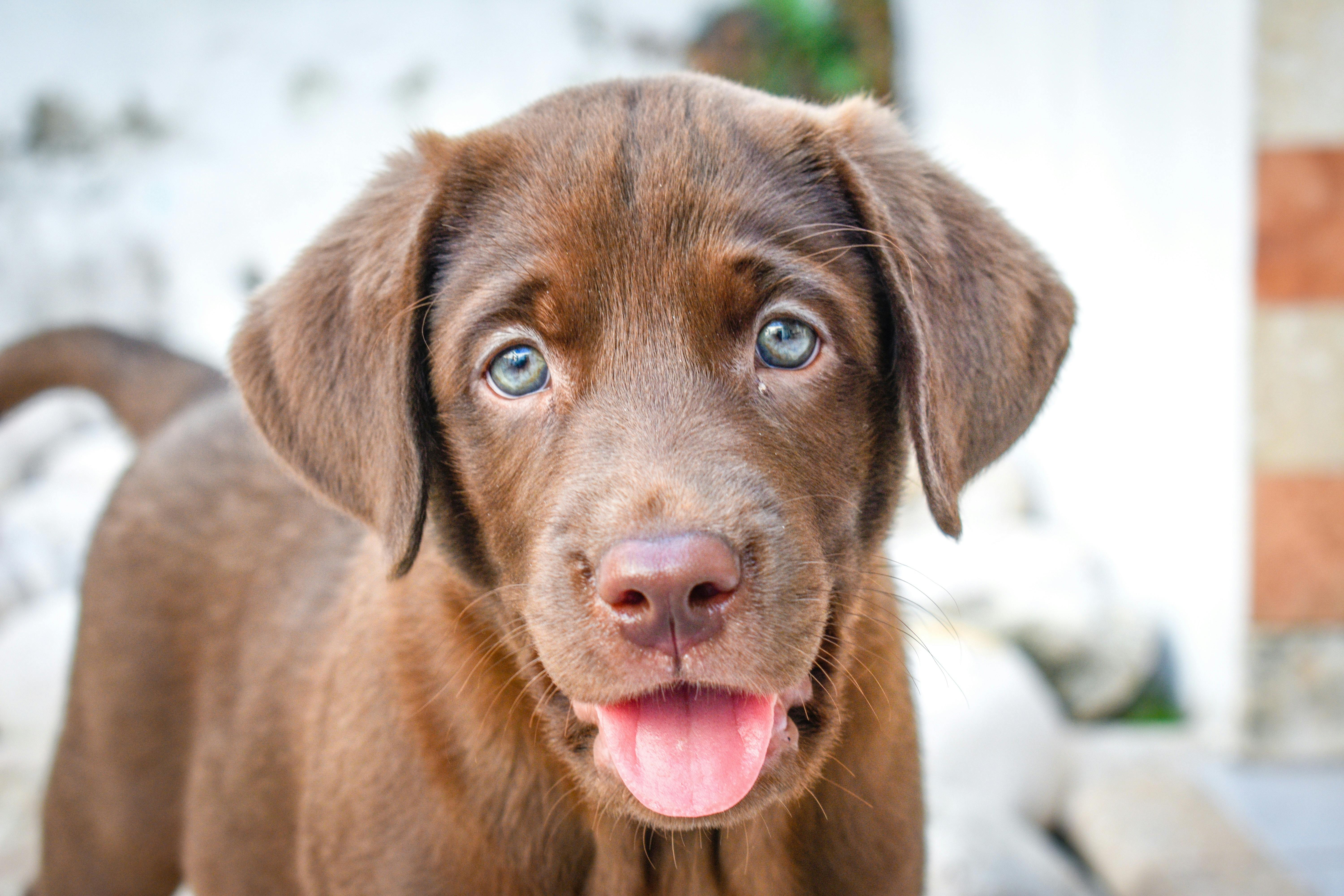What are the different types of hypothyroid disease?
Hypothyroidism is a common endocrine disorder that affects the thyroid gland, leading to a deficiency in the hormone that regulates metabolism. Typically, this disease is diagnosed in older dogs, though there are instances when a dog develops it early in life.
Most dogs affected by hypothyroidism will have one of two underlying causes for their decreased thyroid hormone. The first is lymphocytic thyroiditis, an autoimmune condition that causes the body to produce antibodies that attack the thyroid, destroying its tissue and impacting its ability to produce hormones.
Experts believe this is a heritable condition, which means some dogs have a genetic predisposition. Although it is believed to have a genetic component, hypothyroidism is a complex disease likely caused by a combination of genetic and environmental factors or caused by multiple genes.
The second common cause of hypothyroid disease in dogs is idiopathic thyroid gland atrophy, a condition in which functional thyroid tissue is slowly replaced with fatty tissue. Idiopathic thyroid gland atrophy is not a fully understood disease, though similar to lymphocytic thyroiditis, it causes a deficiency in thyroid hormones.
Lymphocytic thyroiditis and idiopathic thyroid gland atrophy account for approximately 90-95% of hypothyroidism in dogs. The remaining instances are attributed to thyroid cancer, diseases of the pituitary gland, external trauma, and some rare congenital forms of hypothyroidism. The Wisdom Panel Premium dog DNA test screens for three of these congenital forms: Congenital Hypothyroidism (Discovered in the Tenterfield Terrier), Congenital Hypothyroidism (Discovered in the Toy Fox and Rat Terrier), and Congenital Dyshormonogenic Hypothyroidism with Goiter (Discovered in the Shih Tzu).

What dog breeds are prone to hypothyroidism?
Any dog can develop hypothyroidism. However, according to the Merck Veterinary Manual, the following dog breeds are predisposed to the disease:
- Golden Retriever
- Doberman Pinscher
- Irish Setter
- Miniature Schnauzer
- Dachshund
- Cocker Spaniel
- Airedale Terrier
Research into hypothyroidism is ongoing and insights are evolving. For example, new research in the UK indicates a possible predisposition in Tibetan Terriers and Boxers.
Though these breeds may have a genetic predisposition to develop hypothyroidism, because of the complex nature of the disease, genetic testing is not currently available to screen for the most common causes of hypothyroidism. Therefore, since it is a disease that can be managed—but not prevented—it’s important to understand the signs of hypothyroidism so you can help your dog get the care they need.
What are the signs of hypothyroidism in dogs?
When a dog has hypothyroid disease and their metabolism begins to slow, it’s common for them to experience some or all of the following clinical signs:
- Weight gain with no increase in appetite or calorie consumption
- Dry, dull coat and above-average shedding
- Low energy and decreased interest in exercise
- Darkening of the skin and abnormal hair loss not associated with itching, most commonly along the trunk and tail base
- Inability to regrow fur after clipping or shaving
- High cholesterol
- Cold intolerance
- Recurrent skin or ear infections
- Reproductive challenges
- Thickening of the facial skin, resulting in what’s called “’tragic facial expression”
How can you detect hypothyroidism?
If you notice any of the above signs of low or decreased thyroid hormones, your veterinarian can conduct routine lab work and either confirm or rule out the disease. For the rare congenital forms of the disease, genetic testing can determine if your dog carries a risk variant. Because these congenital forms are caused by recessive variants, two copies of the gene are needed to put a dog at risk. However, carrying a single copy is important to know when making breeding decisions.Though at-risk dogs may never show signs of hypothyroidism, carrying two copies of the variant puts them at a moderate to high likelihood of developing these forms of hypothyroidism.
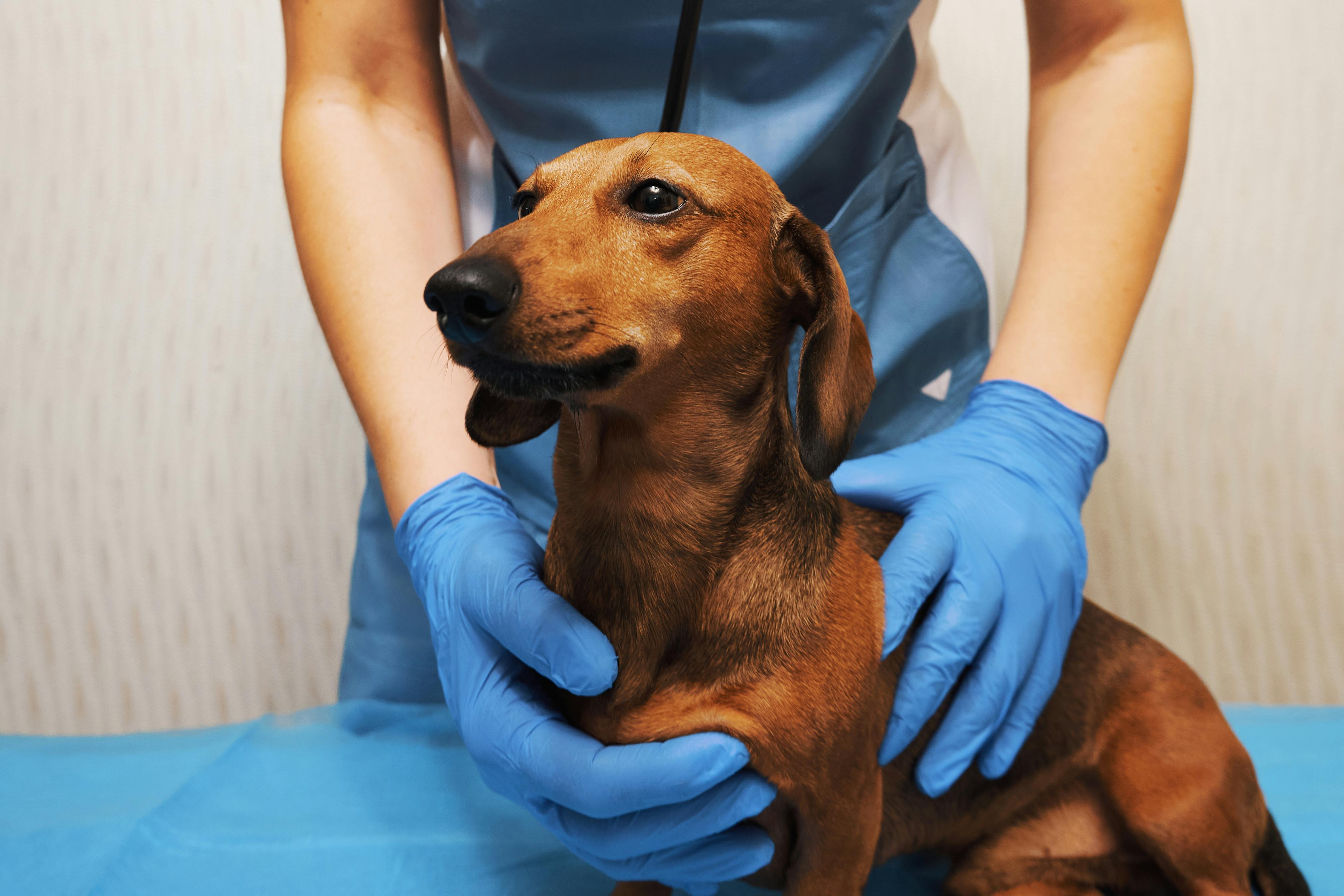
How to treat hypothyroidism in dogs
If your dog is diagnosed with hypothyroid disease, a typical treatment plan includes the following steps:
- Your veterinarian prescribes a daily hormone replacement, which is typically an oral medication.
- After a few weeks, a follow-up exam and blood tests are performed to ensure medication dosage is correct. Adjustments are made as needed.
- Additional treatments may be done in parallel to address related symptoms such as skin infections.
- At-home monitoring and regular veterinary check-ups throughout the dog’s life will ensure that the disease is managed and the quality of life remains high.
What happens if hypothyroidism is left untreated in dogs?
Hypothyroidism is a condition that will progress over time if not treated. As the disease worsens, symptoms will affect the dog’s overall quality of life and potentially shorten their lifespan. For example, dogs carrying extra weight are more prone to heart disease, cancer, diabetes, arthritis, and other serious health conditions. Chronic skin and ear infections can not only cause pain and discomfort, but can damage kidneys and cause chronic kidney disease. And low energy and disinterest in exercise may prevent your pup from participating fully in family life.
Commonly asked questions
How long can a dog live with hypothyroidism?
Dogs that are properly diagnosed and receive ongoing treatment can live long, comfortable lives with hypothyroidism. Forming a strong partnership with your veterinarian is important, as hypothyroidism requires daily hormone replacement medication and regular check-ups to monitor the condition and ensure medications are dosed properly and any secondary conditions such as skin or ear infections are properly managed.
What foods should a dog with hypothyroidism eat?
Dogs diagnosed with hypothyroid disease do well on high-quality, balanced diets that promote a healthy weight. Supplements to help restore their coat quality may also be beneficial. Your veterinarian is your best resource for finding a diet that works best for your pet.
